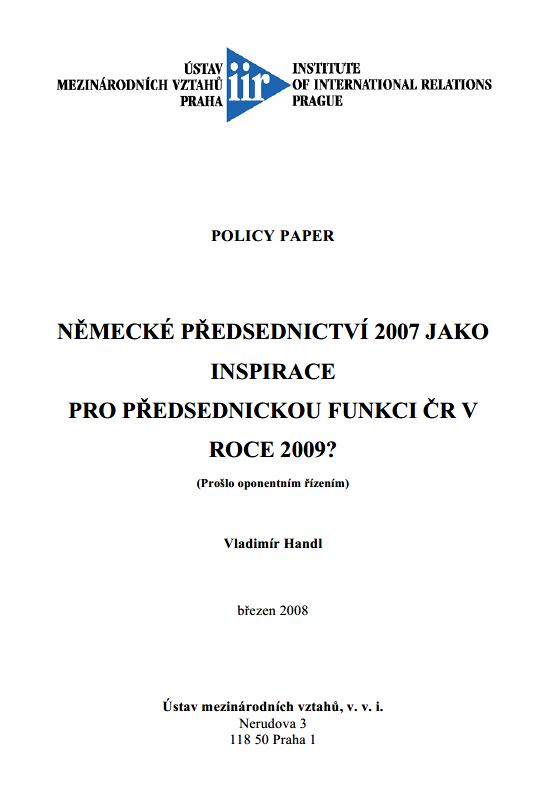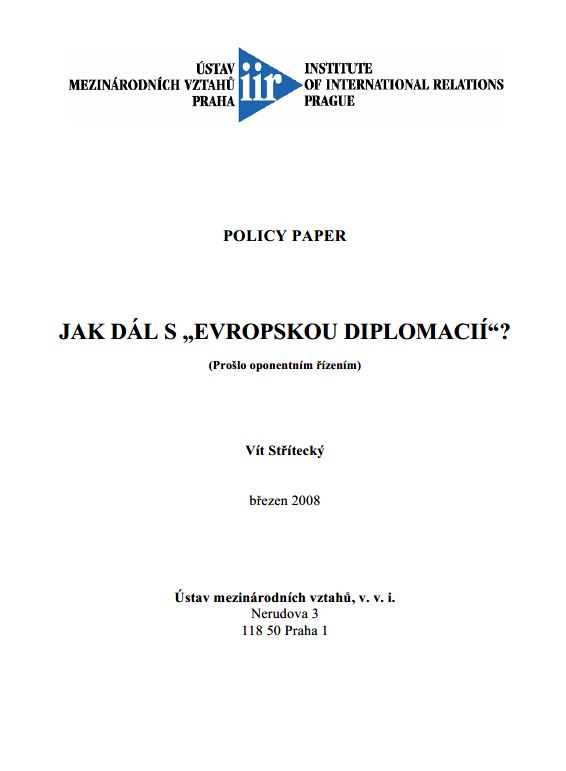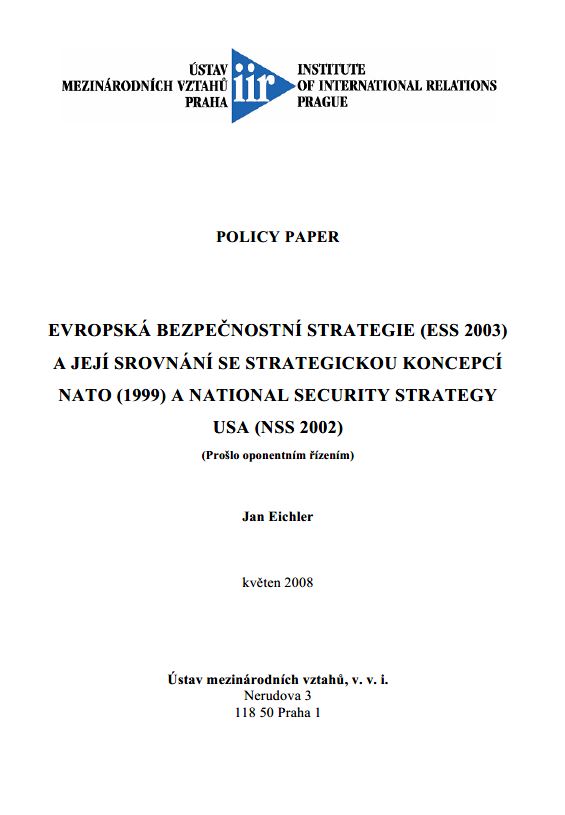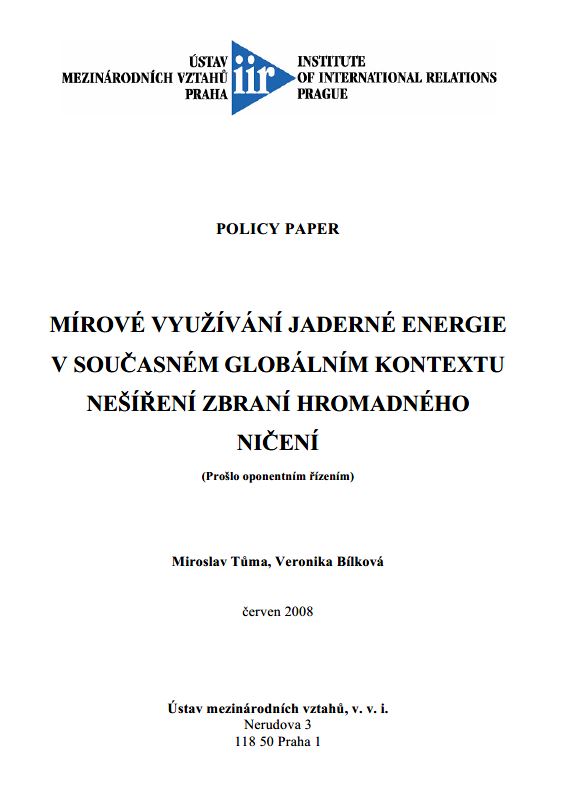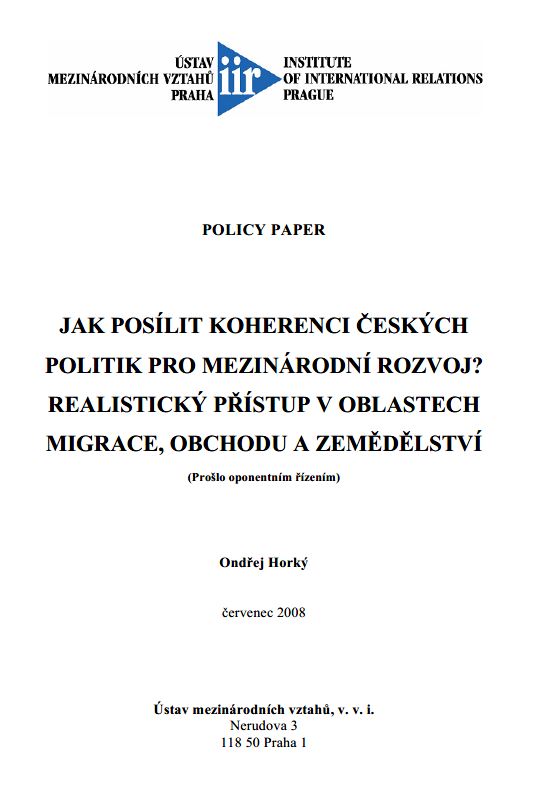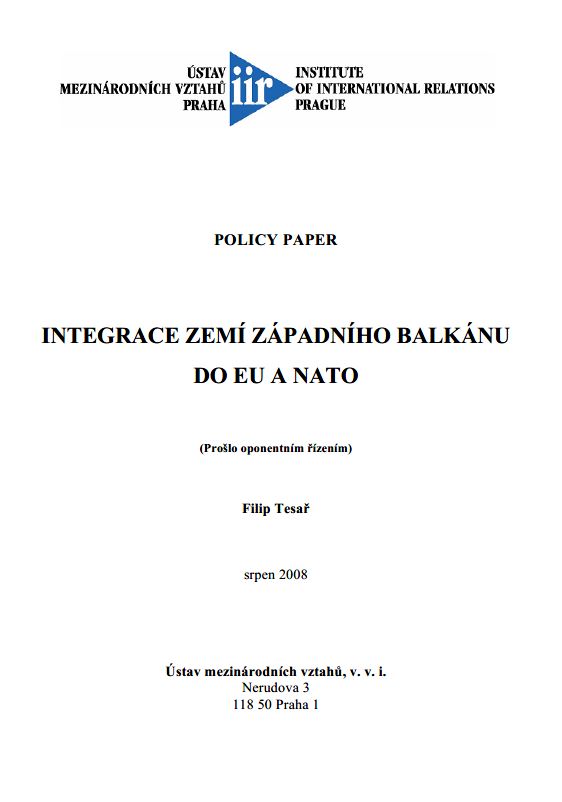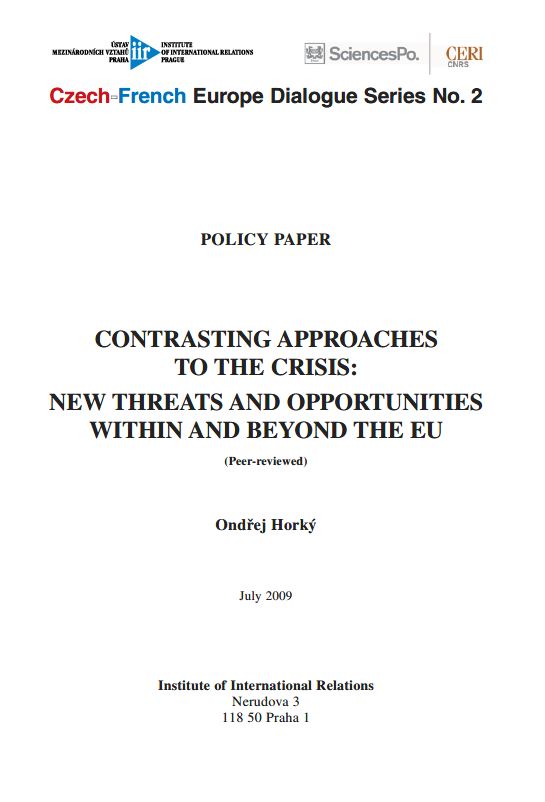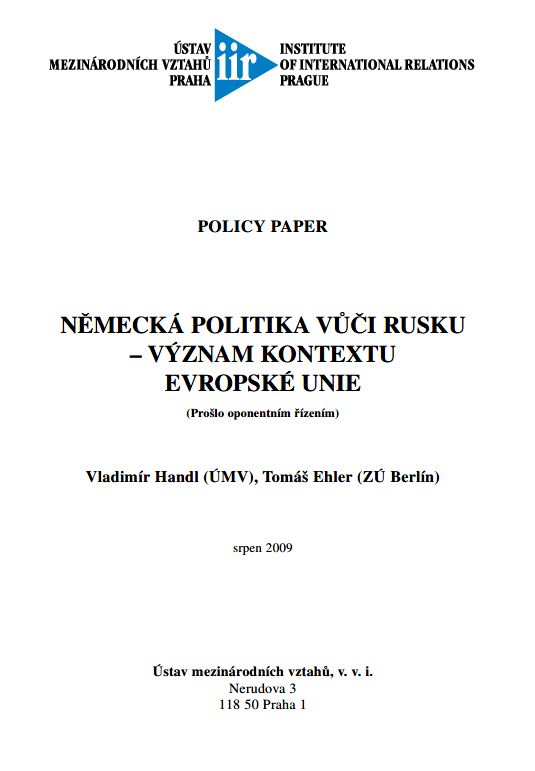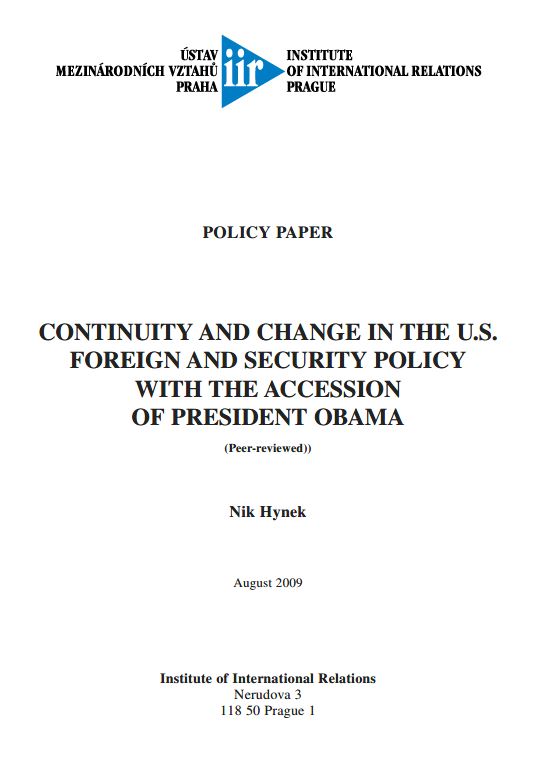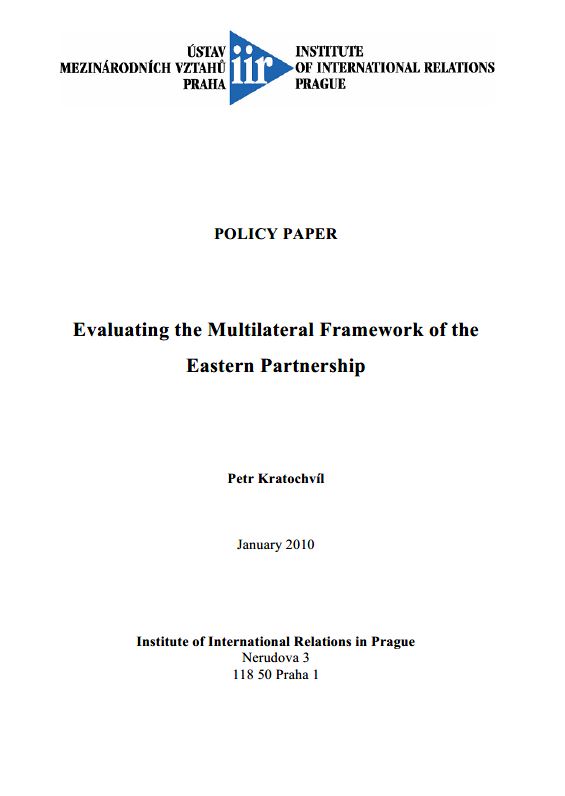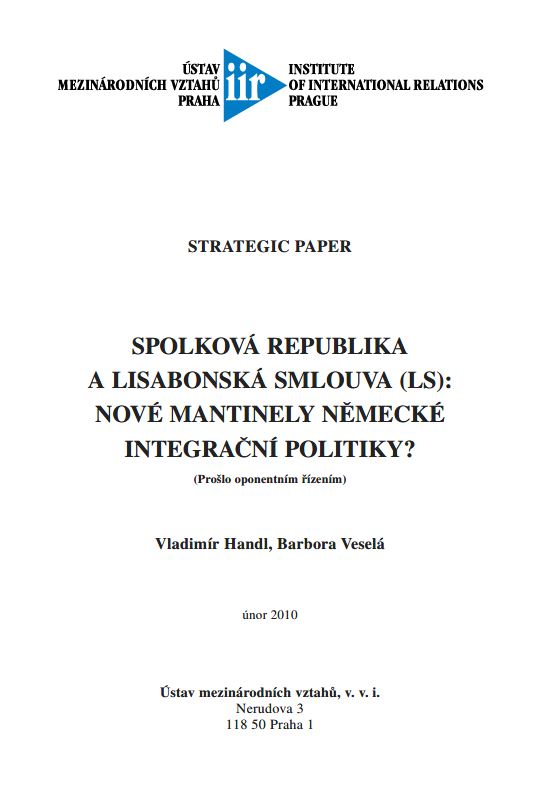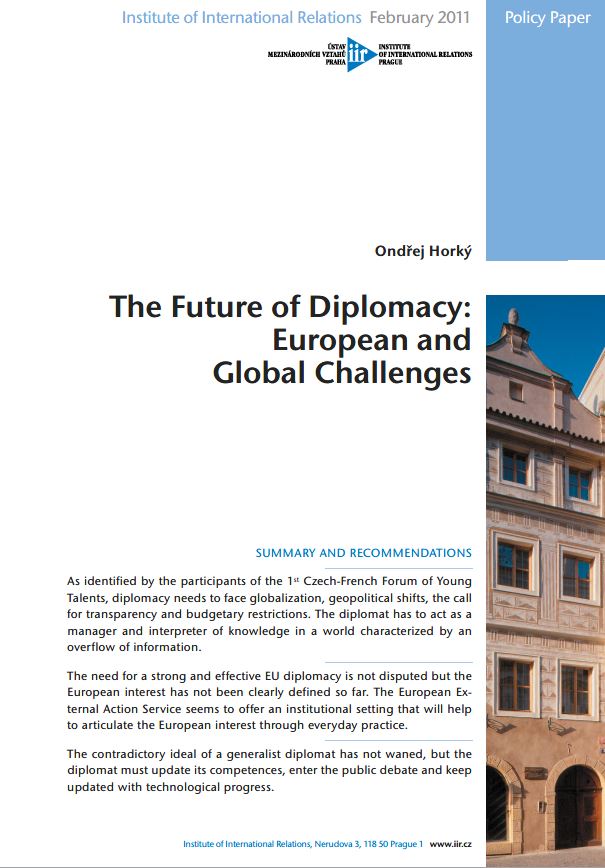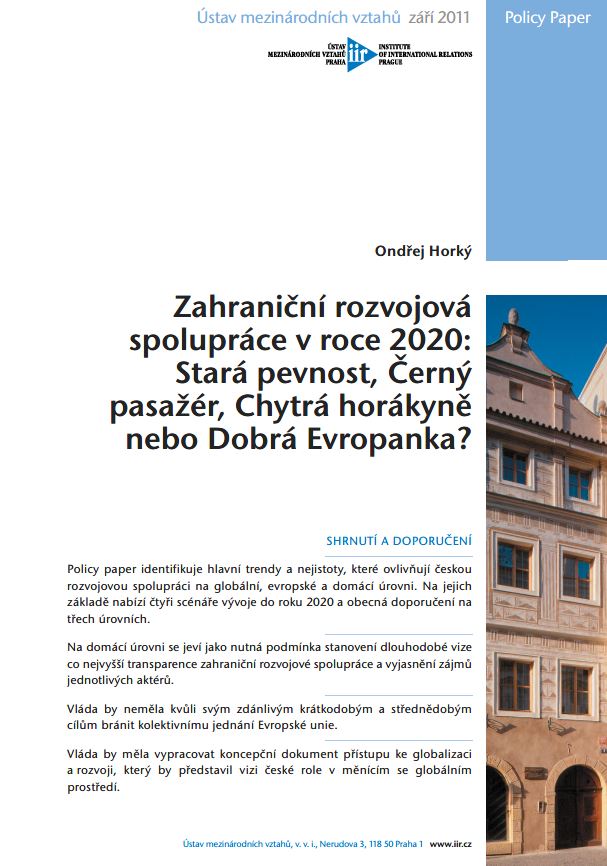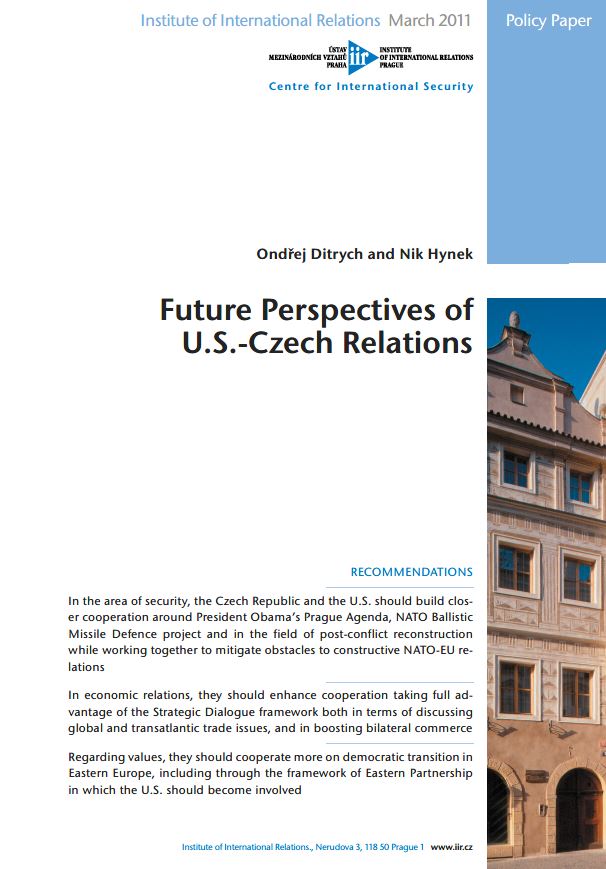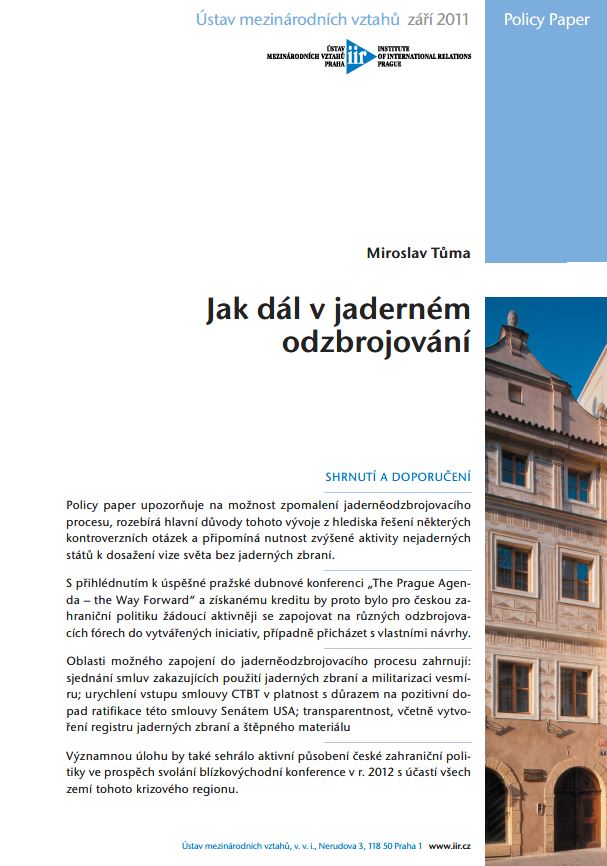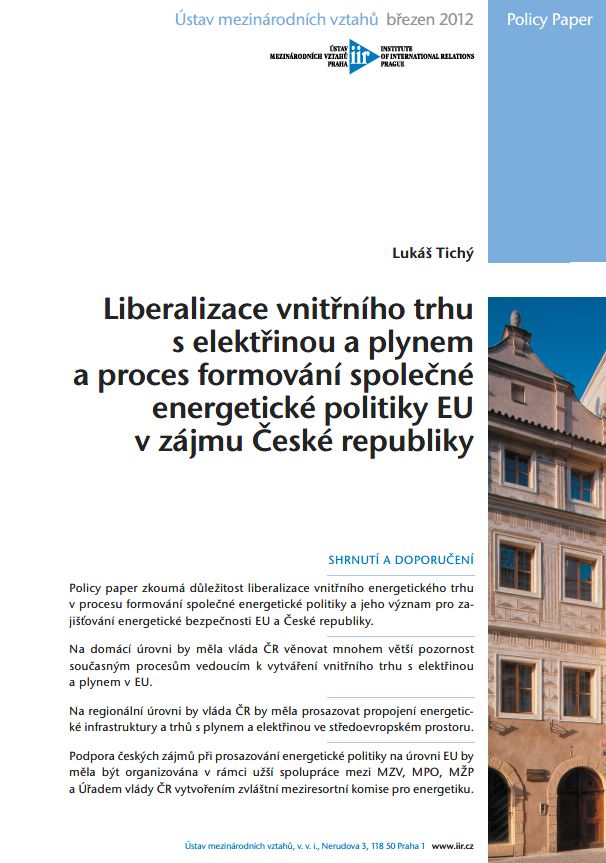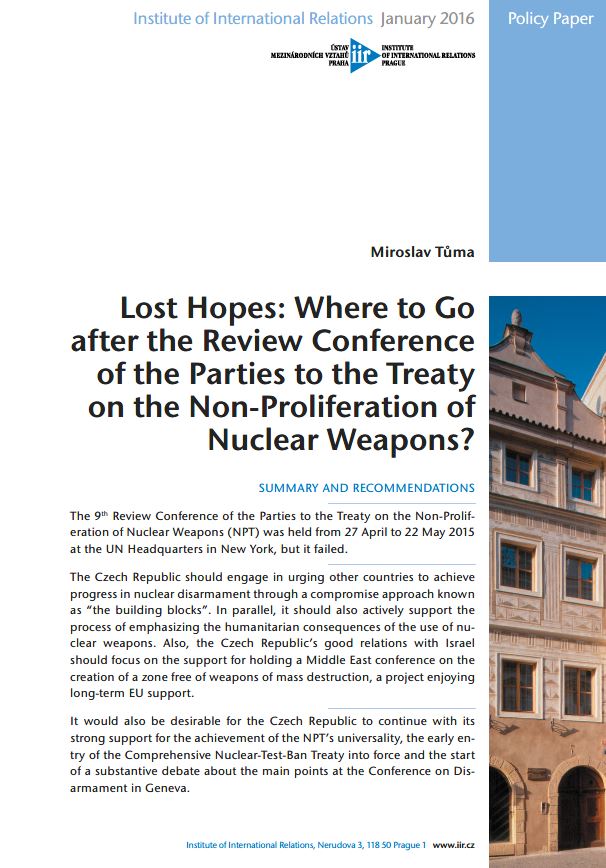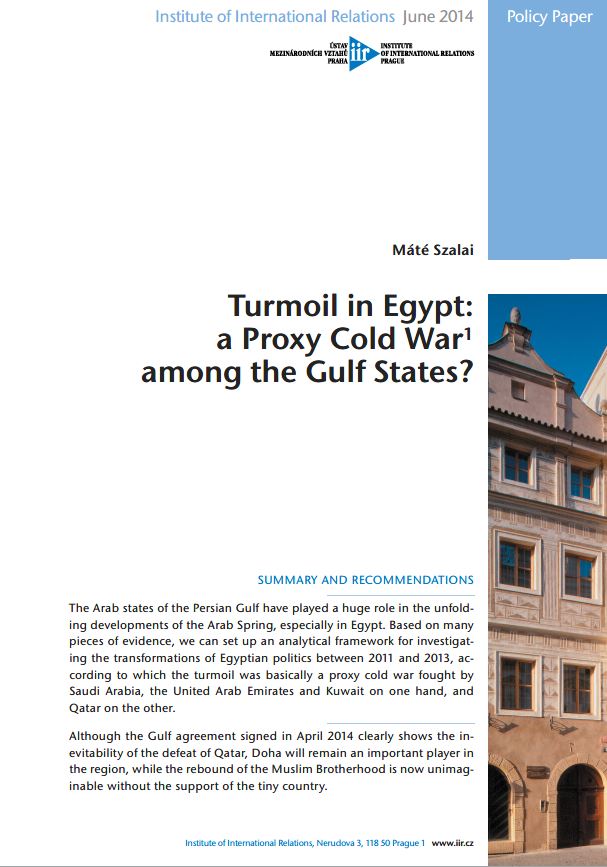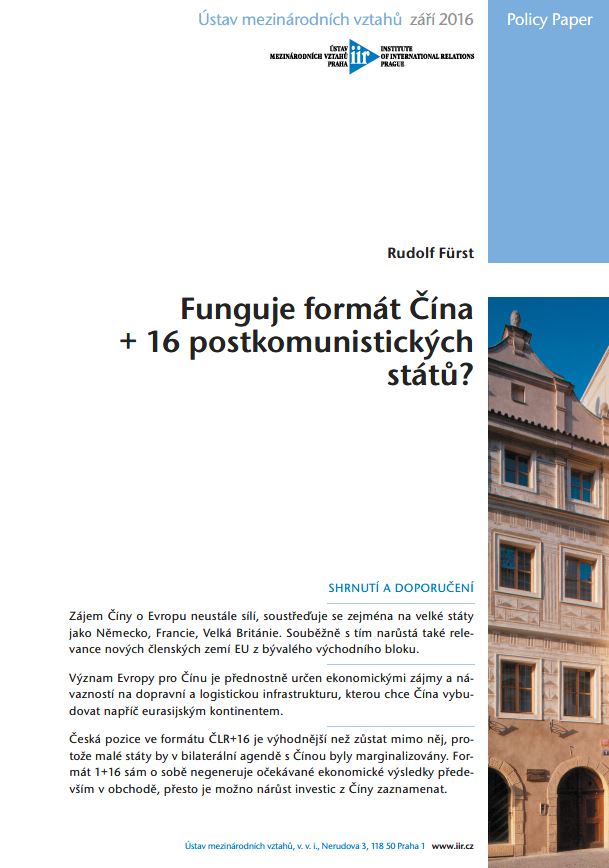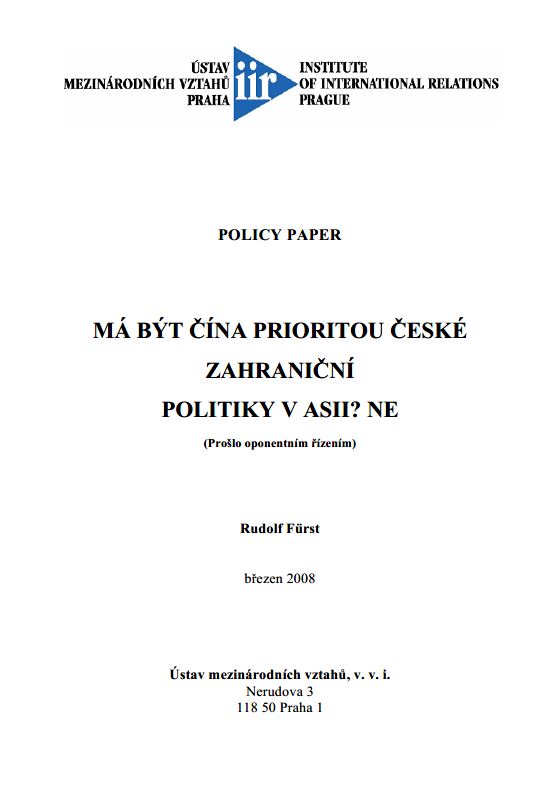
Should China be a priority for Czech foreign policy in Asia? No
Má být Čína prioritou české zahraniční politiky v Asii? Ne
Keywords: politics; Czech Republic; China; foreign policy; government;
Rostoucí mezinárodní význam Čínské lidové republiky (ČLR) nutí českou zahraniční politiku tuto skutečnost reflektovat. Ekonomický potenciál asijské velmoci je velkou výzvou ve snaze posílit a diversifikovat české exportní a investiční aktivity. Vzhledem k omezené veřejné debatě v ČR na toto téma, které je znejasněno vzájemnými ataky politických stran a zamlženo vlivem médií, a s ohledem k nedostatečnému počtu akademických výstupů, zaslouží zamyslet se, do jaké míry je ČLR v současné české politice v Asii zohledněna. O důvod víc je, že opoziční Česká strana sociálně demokratická (ČSSD) prostřednictvím předsedy Jiřího Paroubka opakovaně vyslovila kritiku současné vlády za nedocenění významu ČLR (interview Rudolf Fürst a také časopis Ekonom), s vyjádřením názoru, že existuje skupina zemí, k nimž náleží také ČLR (kromě ní např. dále Rusko, Indie a další), kterým by měla být věnována větší pozornost. Explicitně předseda Paroubek jako hlavní prioritu ČLR neuvedl, v interview (Rudolf Fürst) souhlasil s vytipováním více asijských zemí najednou (Indie, ČLR, Japonsko, Mongolsko, Vietnam). Sama idea, zda by měla ČLR být hlavní prioritou, však stojí za uvážení, bez ohledu na její autorství a vnitropolitický kontext.
More...
